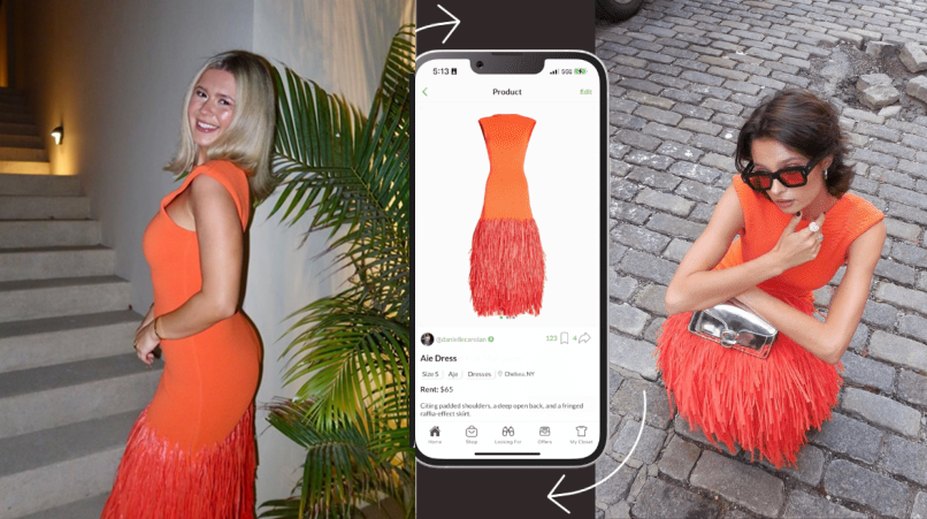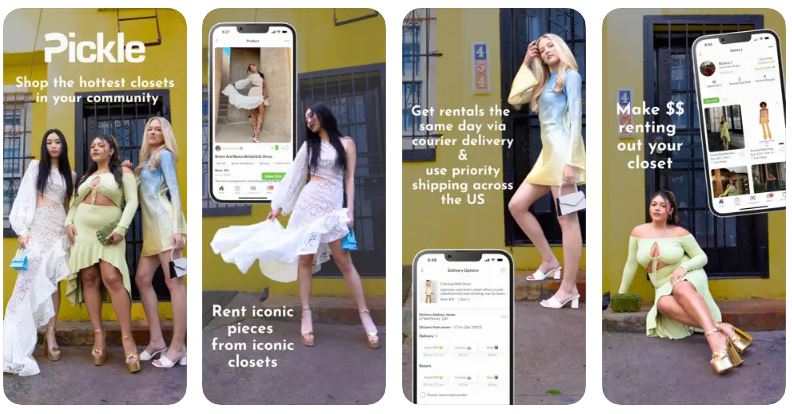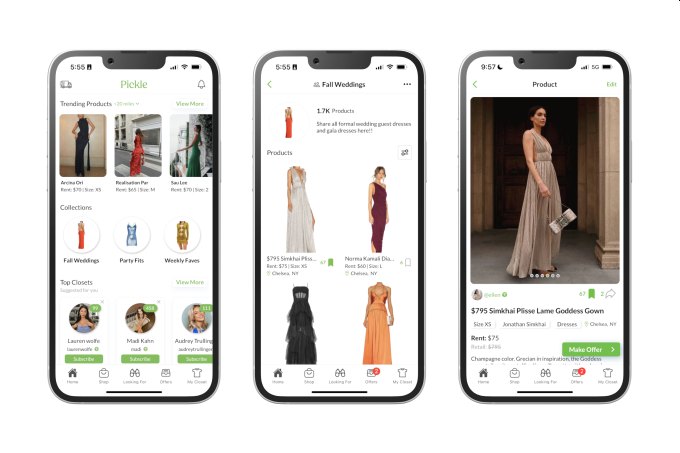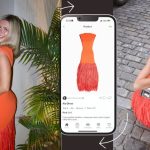Pickle picks up $8M to let you rent the latest styles and trends from its peer-to-peer rental marketplace

Pickle, a New York-based fashion startup, has secured $8 million in seed funding to fuel the growth of its peer-to-peer fashion rental marketplace that enables users to rent the latest fashion trends. Leading this investment round are FirstMark Capital and Craft Ventures, with participation from Burst Capital.
In conjunction with the funding, Pickle also announced that Rick Heitzmann, co-founder of FirstMark, will be stepping into a role on Pickle’s board of directors, joining the startup’s founders. In addition, Pickle will also welcome board observers in the form of Mike Fluhr and Derek Chu, who are affiliated with FirstMark as well.
Pickle was founded in April 2021 by CEO Brian McMahon, a former tight end for the Maryland Terrapin football team. McMahon, who transitioned from his sports career, co-founded the company alongside COO Julia O’Mara.

Initially, Pickle started as an anonymous polling app called Pickle Poll. The app enabled users to seek opinions on each other’s purchases through crowd-sourced polls. The idea for Pickle Poll arose from McMahon’s friendly debates during quarantine, leading to the app’s launch during the summer.
Known for their data-driven approach, the two co-founders decided to conduct extensive analysis to understand how people used the platform and which features gained the most popularity. Interestingly, they noticed that in the comments section, users often offered recommendations based on items already present in their own closets.
“We’re very data-driven people,” the two co-founders said. “We did a lot of analysis on how people were using the platform and what features were most popular. What we found was that, in the comments section, there were a lot of recommendations based on what people already owned in their closets.” They’d say, “‘This is my favorite dress.’ ‘This is my favorite brand.’ ‘This is exactly what I recommend because I have it.’”
The breakthrough moment came when they realized that many of these recommendations were for items the users already owned. This realization prompted a pivotal shift in the service. They transformed it into a platform that allowed people to rent out items they already owned.
“We saw this big opportunity to break down that barrier and allow people to access closets in their community and build out a rental marketplace that would be an extension of your personal closet,” explained O’Mara. This marked the birth of the current version of the app, which the founders refer to as Pickle 2.0. The name cleverly alludes to the predicament one faces when one lacks the right outfit at the right time.

Now, with an $8 million war chest, Pickle has its sights set on expansion. The startup intends to use this fresh capital injection to accelerate its growth, expand its workforce, penetrate additional U.S. markets, and venture into new rental categories. In this regard, Pickle aims to enable users to rent high-quality, underutilized items in their homes, extending beyond just clothing rentals.
“One of the things that’s really helped us get to where we are today is that we let our users make decisions, and then we just listen and refine,” McMahon explained. “What we’re trying to do is essentially create these micro-warehouses on every corner of every community where we redistribute goods within a community very easily and efficiently,” he added.
Pickle currently carries items from top brands including Dana Foley, Poster Girl, Kim Shui, Fanci Club, With Jean, and Cult Gaia. Madi Kahn, a NYC Fashion Influencer and one of Pickle’s users said:
“Pickle is a game changer for my wardrobe and wallet, allowing me to rent designer pieces for all of my different events without breaking the bank or cluttering my closet!”
“My favorite side hustle! I’m a self-proclaimed shopping addict and am now able to share my clothes with other women while making money,” said Ellen Kim, a top Pickle owner.
Meanwhile, the startup is also considering the prospect of launching its inaugural retail space in New York City, emphasizing its commitment to expanding its presence in other promising U.S. markets, including Los Angeles. Additionally, they are gearing up for the relaunch of their app, which comes with a redesigned interface to offer users an enhanced and more seamless experience.

